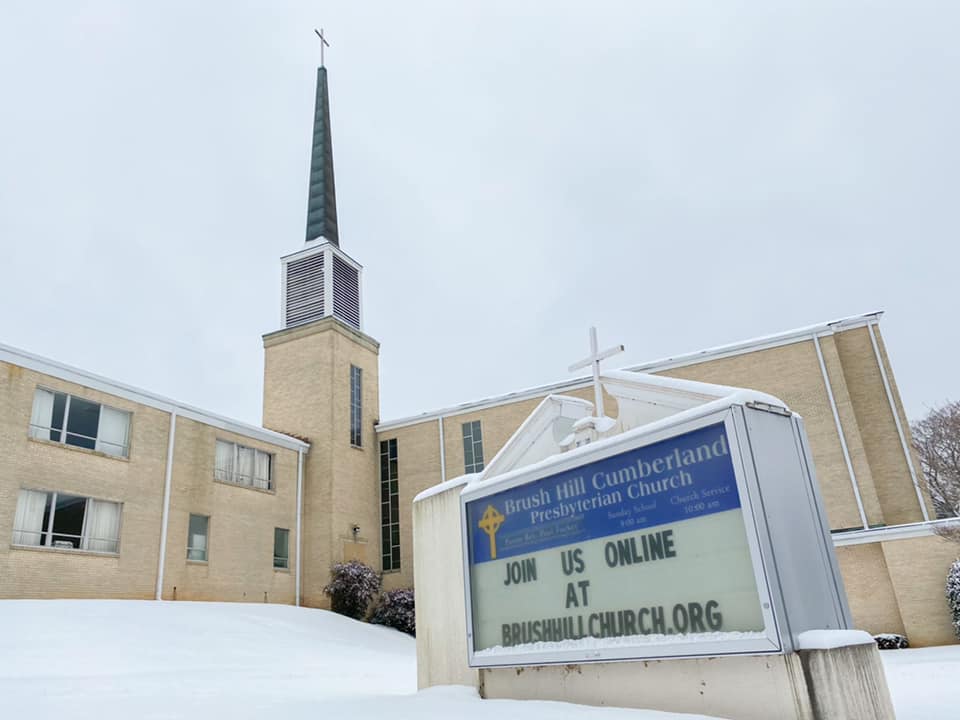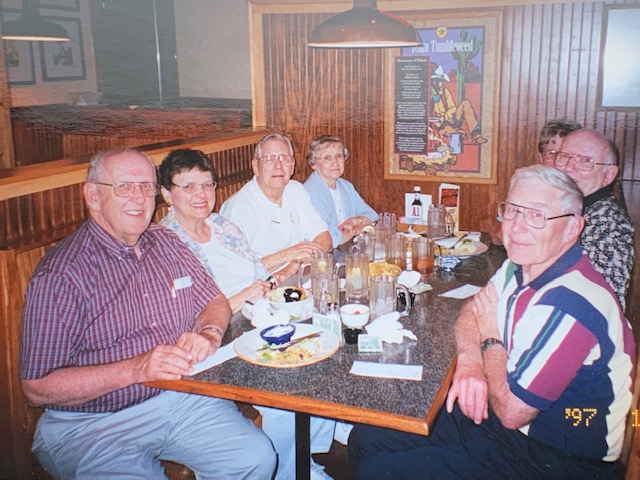“Today [March 19] is the Feast of St. Joseph, the righteous man….We find Mary standing under the cross. Seeing his mother and his beloved disciple, John, Jesus says to his mother, ‘Woman, this is your son.’ (John 19:27). About Joseph there is no word. What happened to him? Did he die?… Joseph was a saint! He lived it all in a great hiddenness. Ignored by the Gospel writers and by the early church, he emerges today as a man trusting in God even when there was hardly anything for him to hold on to.”
Henri J. M. Nouwen, Sabbatical Journey: The Diary of His Final Year (New York: Crossroad, 1998), 130, 131.
I write this column as I sit by my dying father-in-law, Don Bodamer. Don has been in declining health in the last several months, but has been able to enjoy meals and TV shows with the family until ten days ago when he refused to eat and began staying in bed. We celebrated his 93rd birthday on March 24. Although he joined us at the dining room table and blew out his candles on the banana pudding that Susan had made for him, he was in no mood to celebrate and ate none of the pudding that day. (The next day, he had a nice bowlful, though, which he liked and which made us feel better.)
Since I have known him, for more than forty years, Don was always the pastor’s right-hand man. Don loved to plan, to research, to lay out options so a decision could be made. If the sanctuary needed to be re-roofed, or the kitchen needed a new dishwasher, or a new church sign needed to be installed, the pastor would call Don. This was in the days before the internet. Don would send for mailings of descriptions and prices, would call to speak with sales reps, would collate all the information, make a neat type-written presentation, and give it to the pastor and the session. This freed the pastor to visit the sick, prepare a sermon, head a meeting, and write a newsletter article.
Once Don got an idea in his head, he was very persistent. This affected things at church, too. Don’s career at Dupont focused on safety, so if there was a safety issue at the church, Don was on it. Was there a tree close enough to the sanctuary that it could fall on the building with a big wind gust? Don was getting bids to have it removed before anyone else even knew there was a potential problem. Were there too many church door keys floating around the community? Don donated Dupont stock to the church that was to be sold and used to replace all locks with top-of-the-line Sledge locks. At times,I imagine that got to be a bother for the pastor and others in leadership, but I’m sure they all knew Don’s heart and knew that he had the best interests of the church in mind.
Don’s major volunteer work at the church was as the leader of the Ramblers. This was the senior adult group that met monthly for meals and trips. Again, Don used his organizational prowess to discover all the sites within a two-hour drive of Nashville that older adults might enjoy, figure an affordable price per person, make reservations, secure transportation, create sign up sheets, and make sure that everything went smoothly on the day’s event.
When Don retired from Dupont, he became one of the founders of Fun with Science. FWS was a program offered to local schools by retired Dupont employees. Every Thursday for many years, Don and his team did a 45-minute all-school presentation in some school’s gymnasium. The presentation was part magic show and part explaining why this was not magic at all. It’s science and science is fun and wonderful and you ought to think about giving your life to a career in science! It was evangelism, Dupont-style.
I have many other stories and memories and appreciations of Don, of course. But these came to mind as I read Nouwen’s comments about St. Joseph. Most saints are ordinary people who try to express their love for God and church and community through their unique blend of gifts, personality, and character. They do not make the papers or the news features or the gospels. They do what they do not for flash or splash but because there is a need and someone needs to do something. So, the saint steps up. They are not perfect. They can be overbearing because they have a vision and they have a plan and they want it done right (which is their way). Saints can be frustrating. Maybe that’s why a lot of them were martyrs.
I sit by the bedside of Saint Donald, an imperfect husband, father, brother, employee, and church member. Imperfect, but wanting to help. This side of heaven, that’s all we can ask for.
























